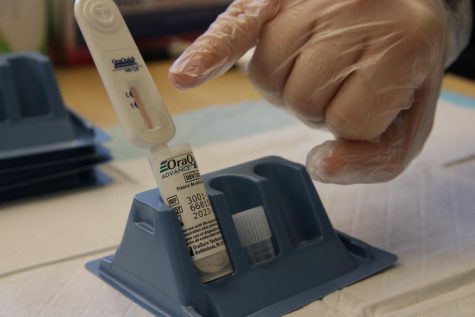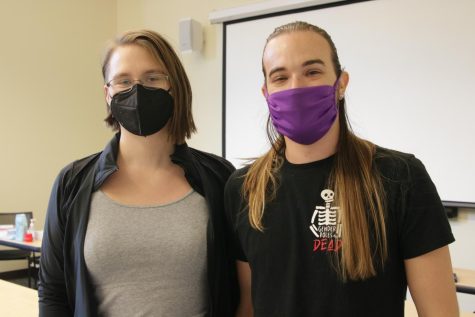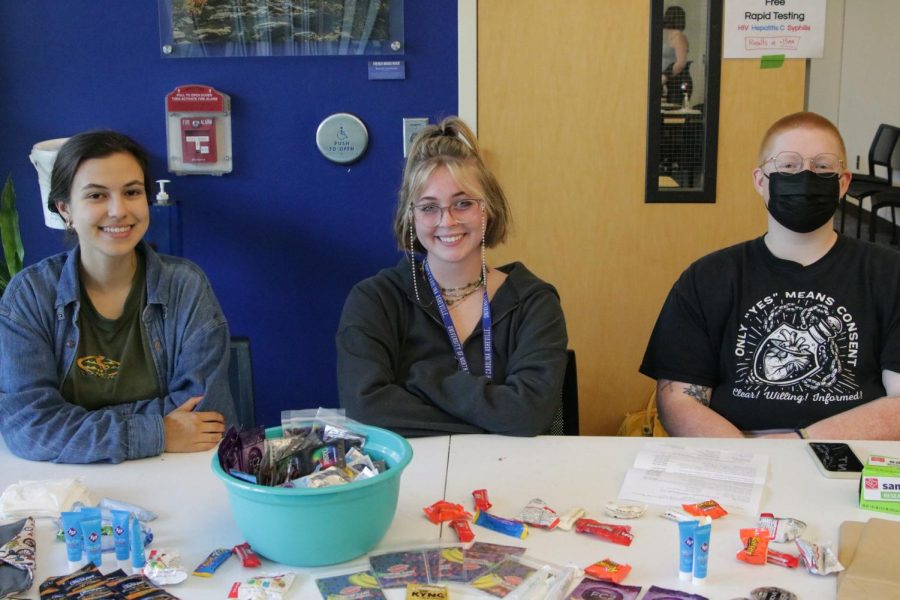Know your status: UNCA gets tested for STIs/HIV
Co-president of the Menstrual Equity club Samantha Mazze, secretary and social media coordinator Theadora Welland and community outreach coordinator Lennon O’Hagan at the free STI/HIV testing event (left to right).
September 20, 2022
UNC Asheville’s Menstrual Equity Club hosted their first free STI/HIV testing event of the semester encouraging students to know their status on Sept. 16.
The testing event, open to all UNCA students, included rapid HIV, Hepatitis C and Syphilis tests with results in 20 minutes or less.
“The turnout was great! I believe we tested 16 individuals which is awesome, especially because many of those tests were first timers,” Sol Wagner, prevention specialist and UNCA alumnus said.
According to the CDC, 1 in 7 individuals living with HIV are unaware of their status.
The Menstrual Equity club partnered with Western North Carolina’s Aids Prevention Project (WNCAP), a nonprofit organization dedicated to providing resources and support to individuals in 18 counties bridging the gap between access to healthcare and information in Western North Carolina.
Lennon O’Hagan, Community Outreach Coordinator for the Menstrual Equity Club and returning member, said the student organization is hoping to host a screening event at least twice a semester.
“It’s really important to us that we offer services and products that are free because we don’t want income to be a barrier to STI treatment or participating in safer sex,” O’Hagan said.

WNCAP provided safe sex supplies such as internal and external condoms, lubricant and feminine hygiene products for passerbyers and students looking to get tested.
Allison Hody, Community Outreach Coordinator and Prevention Specialist at WNCAP, works with a variety of organizations and county health departments to provide free and confidential HIV/STI testing, harm reduction and access to equitable healthcare and legal resources for LGBTQIA+ individuals.
“What we do is more so providing information and helping empower people to know what those resources are and point people in the right direction of other organizations that provide some of those services,” Hody said.
In the event of a positive test result, Hody said individuals are directed to healthcare providers in their area, PrEP referrals, and case management services ensuring their basic needs are met. WNCAP also runs an HIV/AIDS support group and Peer Navigation Program, connecting new clients with prior clients for emotional support.

She said community health workers and staff members at WNCAP aim to mitigate harm in whatever way that looks in their own lives and act as a distribution point for a wide scope of community members in North Carolina’s high country.
“We’re not the whole solution, we’re one piece in that broader puzzle,” Hody said.


















